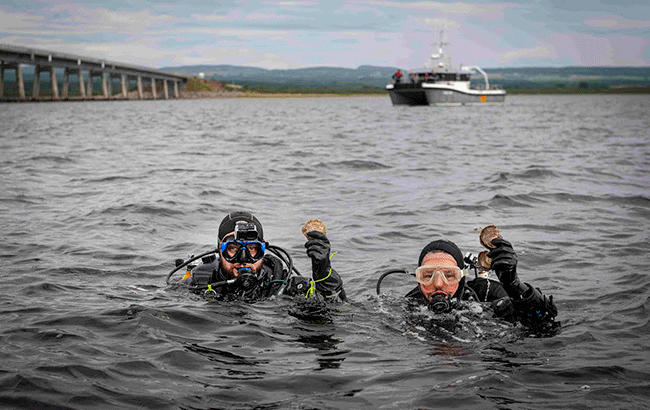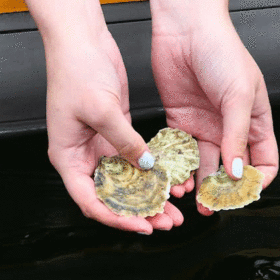This website uses cookies so that we can provide you with the best user experience possible. Cookie information is stored in your browser and performs functions such as recognising you when you return to our website and helping our team to understand which sections of the website you find most interesting and useful.
Glenmorangie restores 20,000 oysters to Dornoch Firth
By Melita KielyA team of scientists from Scotland’s Heriot-Watt University and the Glenmorangie Distillery have returned 20,000 native European oysters to the Dornoch Firth.

The ‘significant’ milestone is the result of the Dornoch Environmental Enhancement Project (DEEP), which has been working to restore a sustainable native oyster reef in the Dornoch Firth.
The oysters became extinct in the Dornoch Firth more than 100 years ago due to overfishing.
Thomas Moradpour, CEO and president at The Glenmorangie Company, said: “DEEP continues to deliver leading research into vital areas that affect us all as we continue on the journey to a ‘net zero’ world.
“Today’s businesses must all play their part, not just to protect the environment in which they operate, but to enhance it, leaving it in better shape for the next generation.”
DEEP was started as part of the Glenmorangie Distillery’s wider sustainability strategy in 2014, with support from partners the Heriot-Watt University and the Marine Conservation Society. The programme aims to create a sustainable reef comprising four million native oysters.
The oysters will help to purify the water, which contains organic by-products from the distillery and the local area. One oyster can purify up to 200 litres of water a day.

Furthermore, the distillery’s anaerobic digestion plant commissioned in 2017 has already successfully reduced the distillery’s biological load on the firth by more than 95%. It is anticipated that the oyster reef will take care of the remaining 5% – thought to be a distillery first.
Professor John Baxter, chair of DEEP’s Independent Research Advisory Panel comprising scientists from the IUCN (International Union for Conservation of Nature), The Marine Biological Association UK and the Native Oyster Restoration Alliance, said: “The DEEP research is greatly improving our understanding of the dynamics of oyster reef restoration.
“It is also helping to set the standard in all aspects of marine habitat restoration work such as biosecurity and monitoring. As we embark on the UN Decade on Ecosystem Restoration (2021-2030) DEEP is a prime example of the multiple benefits (i.e. habitat improvement, biodiversity enhancement and climate change mitigation) that can come from such initiatives.”

